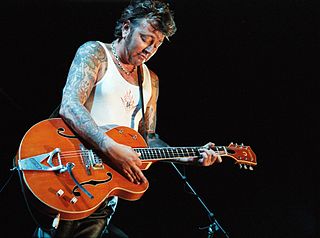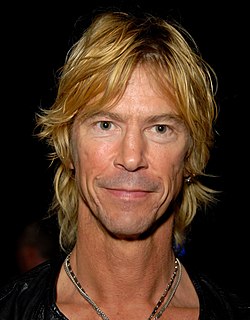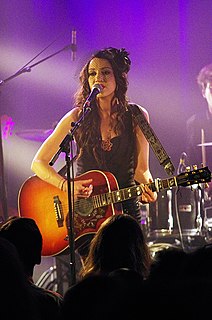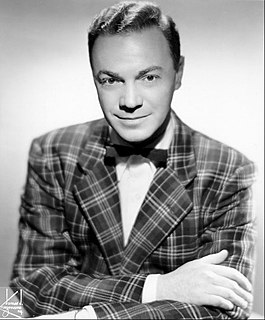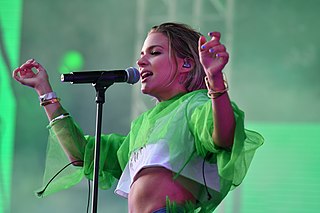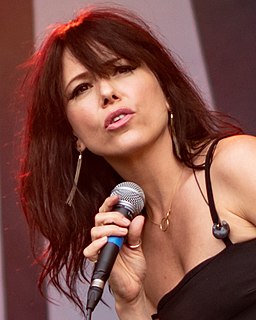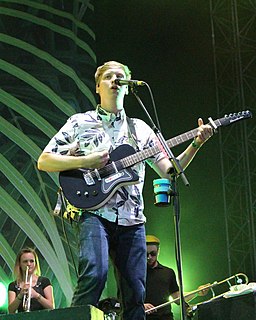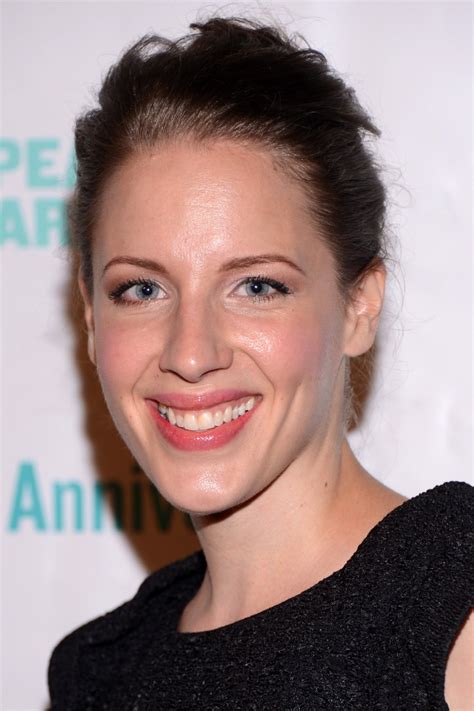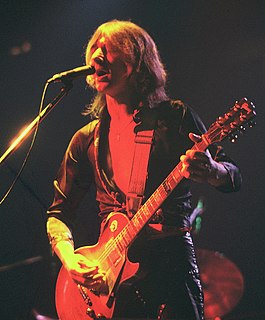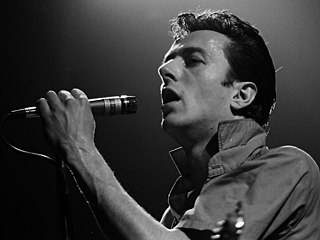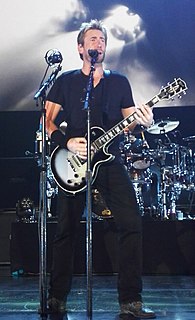A Quote by Brian Setzer
With the Stray Cats at least, we really took the music somewhere else. First, we wrote our own songs. That's a real weak point in modern classics if you do rockabilly or blues.
Related Quotes
When I first came on the scene, I don't think people knew what to make of the way I dress, my aesthetic and how that ties into my music. It took a lot of explaining. You don't really see females in country music dressed in all black wearing funeral garb with netting on their face. I have a bit of a gothic sense to me in a lot of ways, with a bit of outlaw country, rockabilly and blues. My subject matter is off the cuff a little bit.
I had no problem working for 15 hours straight when I was producing someone else, but I couldn't do it with my own songs. It took that moment of pointing the camera at myself to realize that it was okay to get lost in making my own music. I think before that I was scared of pushing myself to the point of staring into the abyss.
I grew up watching the films of 'Carousel' and 'Oklahoma' and 'The Music Man' and 'My Fair Lady' - all the classic musicals of that golden era, The sort of more modern musical theater, or what was modern when I was at a ripe teenage age, I wasn't really listening to that stuff. I was really more raised on the classics.
We always imagine that there's got to be somewhere else better than where we are right now; this is the Great Somewhere Else we all carry around in our heads. We believe Somewhere Else is out there for us if only we could find it. But there's no Somewhere Else. Everything is right here...Make this your paradise or make this your hell. The choice is entirely yours. Really.
In college, I faced an interesting problem. I wanted to play music all the time and yet I wasn't ready for anyone to hear it. To remedy this, I took to retreating to stairwells as a safe place to sing and write music. It was there that I wrote most of my songs in college and really grew into an artist.
What's holding me up is I'm confused about the nature of the music. Because the modern music doesn't reach me. I mean to say the sound of the modern electric production. A lot of sequencers... synths. That's what people are buying. Because that doesn't reach me, it throws me back to like 1948, but I don't want to be there. Back there, I'm talking about blues records... The roots of rock'n'roll is rhythm and blues and that's like really where I'm at, where I was always at.
Too many times I've heard records from bands who were obviously, like, 'Well, we're at least gonna do half as well as we did on our last record. At least we can count on that.' You really have to keep that initial hunger that made some of your first best songs your first best songs. You have to keep that fire in the belly.
